
Klang
Jonty Harrison
Klang has been performed in Berkeley, Berlin, Birmingham, Bogotá, Bristol, Brno, Brussels, Cambridge, Cologne, Coral Gables, Edinburgh, Gainesville, London, Moissac, Mons, Montpellier, Montréal, New York City, Nîmes, Oslo, San Francisco, São Paulo, Seattle, Stanford, Strasbourg, Vienna and Weimar…
The title (‘Klang’ is the German for ‘sound’) reflects the onomatopoeic nature of the family of sounds providing the raw material for the piece — sharp, metallic attacks with interesting resonances rich in harmonics. The real starting point for Klang was the discovery (in Denis Smalley’s kitchen!) of two earthenware casseroles, the sounds of which were recorded in the Electroacoustic Music Studio of the University of East Anglia (Norwich, UK) during the summer of 1981. Material of two kinds was recorded — attack/resonance sounds made by tapping the lids on or in the bowls, and continuous rolling sounds made by running the lids around the insides of the bowls. Different pitches resulted from the various combinations of lids and bowls, and different qualities of resonance emerged according to the attack position. The microphones were placed very close to the bowls to maximize the movement within the stereophonic image. Other related material, accumulated over the previous three or four years, was also used. This included both real-world sounds, such as cow-bells, metal rods and aluminum bars, and electronically generated sounds, both analog and digital. The final impetus to compose the piece came in June 1981 when I was invited by János Décsenyi to work in the Electronic Music Studio of Magyar Rádió in Budapest. As studio time would be limited I was advised to take a certain amount of taped material with me; the two weeks prior to the visit were therefore spent in preliminary work in the Electroacoustic Music Studio of The University of Birmingham. Much of the opening two sections of the piece were composed before going to Hungary.
Although continuous, Klang falls into six short, fairly clearly defined sections: Introduction; Development 1: duet; Development 2: interruption of duet and increase in complexity towards the first climax; Development 3: relatively static section; Development 4: proliferation of material from the previous section into glissando structures, build-up to the second (main) climax; and slow release to the final Coda.
The listener can trace the development of the material from raw statements of casserole sounds in the Introduction, through more complex, highly transformed events in the four sections, back to the opening sound-world in the Coda. The most obvious transformation technique is mixing, using multiple but only slightly transposed versions of simple sounds. Besides mixing and transposition with tape recorders and a harmonizer, the main modifications were achieved by filtering and, most important of all, montage. This last technique is the principal means of controlling the timing and rhythmic articulation of the material and its organisation into phrases (which may be a single line or a mix of many layers, edited together into the desired sequence).
[ix-00]
Klang [Timbre] was realized in 1982 in the Electronic Music Studio of Magyar Rádió (HEAR) in Budapest (Hungary) and premiered later that year at the University of Birmingham (UK). The piece was commissioned by MAFILM. It was awarded 2nd prize in the Analogue Category of the 1983 Bourges International Electroacoustic Music Awards (France) and it was awarded a 1992 Euphonie d’or “as one of the twenty most significant works from two decades of the Bourges Awards.” Thanks to János Décsenyi. It has been performed and broadcast in many parts of the world, including at the 1984 ISCM World Music Days in Toronto (Canada). Klang has been previously released in 1984 on the UEA label (UEA 84099) and in 1996 on the NMC label (NMC D035).
Premiere
- December 7, 1982, Concert, Elgar Concert Room — Faculty of Arts Building — University of Birmingham, Birmingham (England, UK)
Awards
Details
Calendar
-
Tuesday, December 7, 1982Birmingham (England, UK)
-
Thursday, February 20, 1997Montréal (Québec)
-
Thursday, November 19, 1998Brussels (Belgium)
-
Monday, April 9, 2001Montréal (Québec)
-
Thursday, December 13, 2001Montréal (Québec)
-
Friday, July 5, 2002Berlin (Germany)
-
Friday, August 16, 2002Berkeley (California, USA)
-
Friday, March 7, 2003Birmingham (England, UK)
-
Sunday, November 16, 2003Edinburgh (Scotland, UK)
-
Sunday, October 31, 2004Edinburgh (Scotland, UK)
-
Friday, February 17, 2006Gainesville (Florida, USA)
-
Monday, June 5, 2006Cologne (Nordrhein-Westfalen, Germany)
-
Sunday, October 29, 2006Edinburgh (Scotland, UK)
-
Sunday, November 4, 2007Edinburgh (Scotland, UK)
-
Friday, January 11, 2008Birmingham (England, UK)
-
Friday, November 7, 2008Edinburgh (Scotland, UK)
-
Sunday, November 9, 2008Edinburgh (Scotland, UK)
-
Friday, May 8, 2009New York City (New York, USA)
-
Wednesday, May 13, 2009Cambridge (Massachusetts, USA)
-
Thursday, May 14, 2009Cambridge (Massachusetts, USA)
-
Sunday, January 9, 2011San Francisco (California, USA)
-
Monday, January 10, 2011Stanford (California, USA)
-
Wednesday, January 12, 2011Berkeley (California, USA)
-
Monday, January 23, 2012London (England, UK)
-
Saturday, December 1, 2012Birmingham (England, UK)
-
Thursday, October 10, 2013Moissac (Tarn-et-Garonne, France)
-
Saturday, June 7, 2014Montpellier (Hérault, France)
-
Friday, June 20, 2014Brussels (Belgium)
-
Tuesday, October 7, 2014Gainesville (Florida, USA)
-
Thursday, October 9, 2014Coral Gables (Florida, USA)
-
Thursday, October 16, 2014Brussels (Belgium)
-
Friday, October 24, 2014São Paulo (Brazil)
-
Thursday, April 9, 2015Seattle (Washington, USA)
-
Monday, October 26, 2015Strasbourg (Bas-Rhin, France)
-
Wednesday, December 2, 2015Brno (Czech Republic)
-
Saturday, October 1, 2016Vienna (Austria)
-
Friday, November 4, 2016Bogotá (Colombia)
-
Tuesday, November 22, 2016Oslo (Norway)
-
Saturday, September 2, 2017Brussels (Belgium)
-
Wednesday, November 15, 2017Bristol (England, UK)
-
Tuesday, January 23, 2018Nîmes (Gard, France)
-
Tuesday, October 30, 2018Seattle (Washington, USA)
-
Saturday, January 26, 2019London (England, UK)
-
Friday, July 12, 2019Weimar (Thüringen, Germany)
-
Wednesday, December 11, 2019Brussels (Belgium)
-
Friday, April 22, 2022Mons (Belgium)
-
Tuesday, December 6, 2022London (England, UK)
Broadcasts
| Date | Work | Programme |
|---|---|---|
| February 1, 2008 | Jonty Harrison, Klang (1982), 9:00 | Radio Horizon 93.9 FM (South Africa) |
| November 14, 2016 | Jonty Harrison, Klang (1982), 9:00 | Acoustic Frontiers / CKCU 93.1 FM (Canada) |
| December 26, 2017 | Jonty Harrison, Klang (1982), 9:00 | Late Junction with Gabriel Prokofiev / BBC Radio 3 (UK) |
| February 7, 2019 | Jonty Harrison, Klang (1982), 9:00 | Thuisreis / Radio Centraal (Belgium) |
| May 23, 2023 | Jonty Harrison, Klang (1982), 9:00 | Mélimélomane 112: Klang & + / Divergence FM (France) |
![Jonty Harrison [Photo: Alison Warne, August 18, 2007]](https://res.electrocd.com/image.php/image/h/harrison_jo.4.jpg?width=n2&cropratio=5:3)
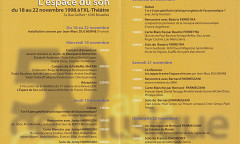
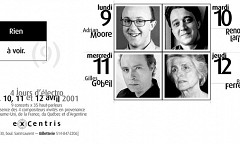
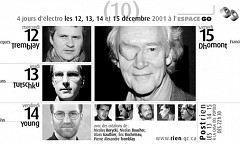
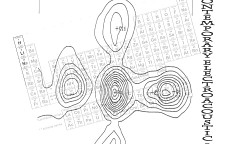
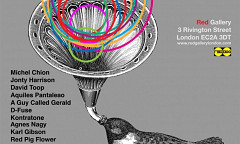
![Denis Smalley [Photo: George Kinnear, Ca. July 2019]](https://res.electrocd.com/image.php/image/s/smalley_de.9722.jpg?width=n2&cropratio=5:3)
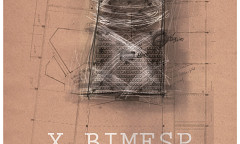
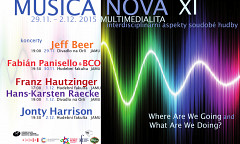
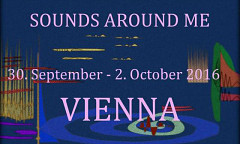
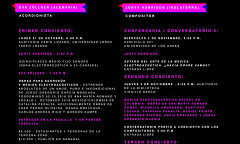
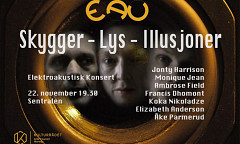
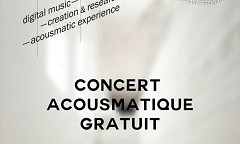
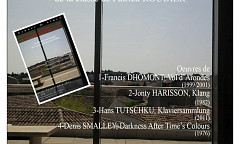
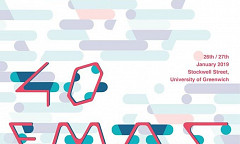
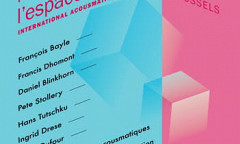
![Sophie Delafontaine [Photo: Britt Roger Sas, Ohain (Belgium), October 5, 2023]](https://res.electrocd.com/image.php/image/d/delafontaine_so_13414.jpg?width=n2&cropratio=5:3)